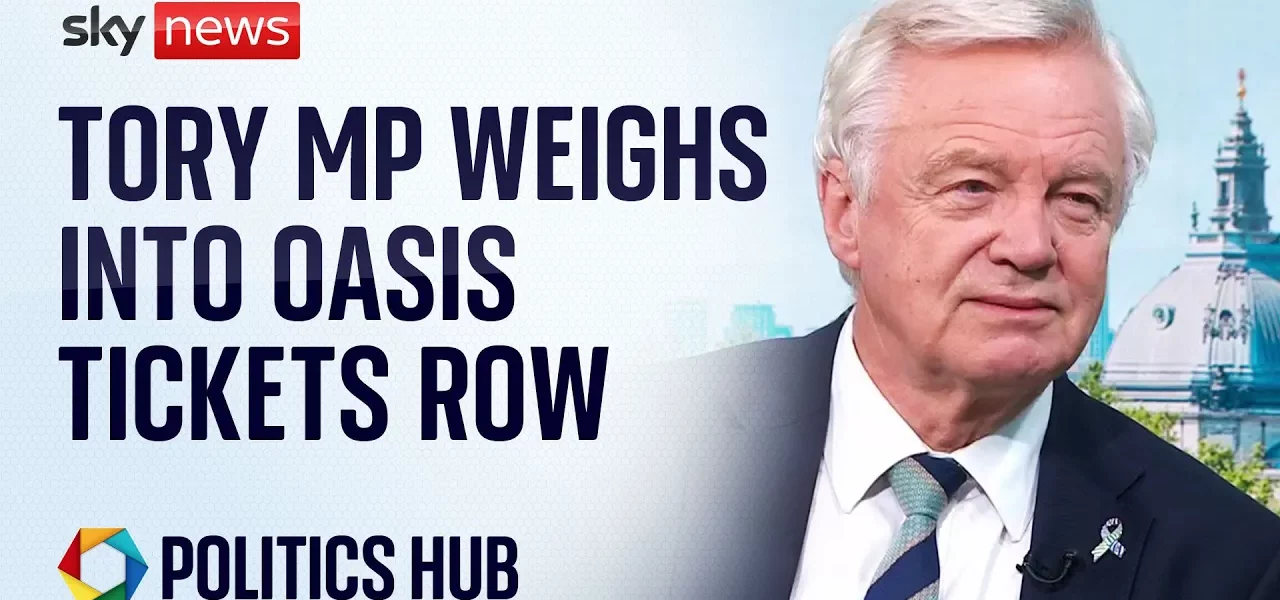Oasis Concert Ticket Controversy: A Deep Dive into Pricing and Fairness

In this article, we will explore the recent uproar regarding Oasis concert ticket pricing, examining the implications for fans and the market as a whole. This discussion highlights the intersection of consumer rights, corporate practices, and market regulations.
Introduction
The recent sale of Oasis concert tickets has sparked significant outrage among fans and critics alike. Many attendees found themselves ensnared in a convoluted ticket purchasing process that not only wasted their time but also subjected them to exorbitant price hikes. This article delves into the controversial practices of ticket pricing, the experiences of fans, and the broader societal implications of such corporate behaviors.
The Fan Experience and the Queue Dilemma
Many fans expressed frustration at the ticket purchasing process, describing a scenario that felt more like a punishment than a privilege. One particularly striking account involved a fan who waited for six hours only to face a dramatic price increase at the last moment.
Case Study: The Six-Hour Wait
This fan reported having to queue to get into the queue, a situation that reflects the chaotic nature of ticket sales today. After spending six hours waiting, she discovered that the ticket price had surged from £135 to approximately £355. This experience not only wasted her time but also left her without a ticket, exacerbating feelings of disappointment and betrayal.
Understanding the Sunk Cost Phenomenon
The concept of the sunk cost phenomenon in economics explains why consumers may feel compelled to continue investing time or money into a frustrating situation. In this case, after dedicating significant time to waiting, fans felt they had no choice but to accept the inflated prices or forfeit their efforts entirely.
- Frustration with ticket prices
- Feeling of betrayal among fans
- Wasted time leading to emotional distress
Market Practices and Consumer Rights
The practices surrounding ticket sales have raised questions about fairness and transparency. Critics argue that what is often labeled as “supply and demand” is in fact a manipulation of consumers, especially when they are misled about the true cost of tickets.
The Role of Dynamic Pricing
Dynamic pricing, which adjusts prices based on demand, has been defended by some as a legitimate market strategy. However, many believe it crosses ethical boundaries when it takes advantage of consumers’ emotional investments in their favorite artists.
Institutional Scalping versus Individual Scalping
Fans have long criticized individual scalpers for reselling tickets at inflated prices. Yet, the practices of companies like Ticketmaster can be viewed as a form of institutional scalping, where the system itself profits at the expense of genuine fans.
- Consumer frustration with ticket sales
- Need for regulatory clarity on pricing practices
- Potential legislation to protect consumers
Political Response and Legislative Action
In light of the ongoing issues with ticket pricing, there have been calls for political action. The Competition and Markets Authority (CMA) has been approached for a review of the rules governing ticket sales, with advocates arguing that current regulations are insufficient to protect consumers.
Proposed Changes to Legislation
Potential changes may include stricter regulations on dynamic pricing and improved transparency in ticket sales. Advocates hope that these changes will create a fairer marketplace for fans.
Political Accountability
Politicians are urged to hold the current government accountable for the mishandling of consumer rights in the ticketing industry. This includes recognizing the emotional and financial investments made by fans and ensuring that they are treated fairly.
Conclusion
The controversy surrounding Oasis concert tickets reveals significant flaws in the current ticketing system, particularly regarding pricing strategies and consumer rights. As fans continue to express their dissatisfaction, it is crucial for both businesses and lawmakers to engage in meaningful dialogue to address these concerns. A fair market should prioritize transparency and equity, ensuring that fans are not taken advantage of in their pursuit of enjoying live music. We encourage readers to stay informed about these issues and advocate for change in the ticketing landscape.
For more insights on consumer rights and market regulations, check out our related articles on consumer rights and market regulations.
“`




